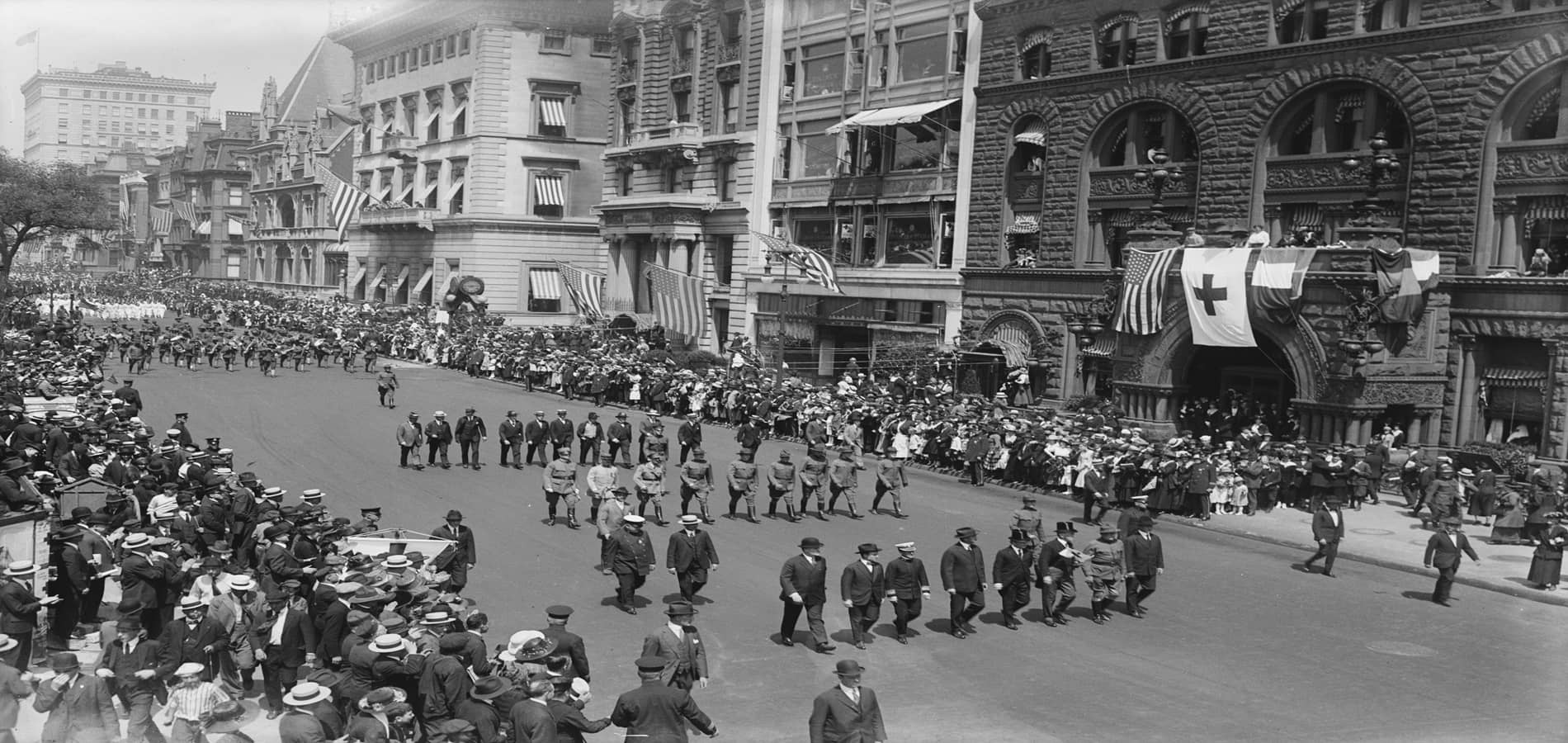Yesterday, the United States observed the holiday which marks Martin Luther King Jr.’s birthday.
Did you know?
Martin Luther King Jr. was born on January 15, 1929 in Atlanta, Georgia with the original birth name of Michael King. His father was also named Michael King and later changed both his own and his son’s name after a trip to Germany. The name Martin Luther was chosen in honor of the German religious reformer from the 1500s.
About Martin Luther King Jr.
Martin Luther King Jr. was an American Baptist minister and activist who became a leader in the Civil Rights Movement. He is best known for his role in the advancement of civil rights through nonviolent disobedience and for protesting racial discrimination in federal and state laws.
King’s fame grew with his leadership in Montgomery bus boycott of 1955 which led to the Browder v. Gayle (142 F. Supp. 707) ruling, which declared the racial segregation laws for buses in Alabama to be unconstitutional.
An advertisement to solicit funds for Dr. King’s defense of a perjury indictment was the subject of New York Times Co. v. Sullivan (376 U.S. 254), where some actions against civil rights protesters were inaccurately described and seen as defamatory. This landmark United States Supreme Court case established the actual-malice standard, which in turn allowed free reporting of the civil rights campaigns in the southern United States.
He also helped organize the 1963 protests in Birmingham, Alabama, which were focused on Jim Crow laws. A local court eventually issued an injunction prohibiting petitioners from participating in or encouraging mass street parades without a permit as required by city ordinance, therefore barring King and other protesters from demonstrating. Viewed as unjust, the injunction was defied and King was imprisoned and found in contempt for violating the injunction. It was later argued that the injunction stemmed from their violation of unconstitutional ordinances in Walker v. City of Birmingham (388 U.S. 307).
While imprisoned for participating in one of these nonviolent protests, King wrote the widely published “Letter from Birmingham Jail”, which defended the nonviolent resistance to racism.
In 1965, King helped organize the Selma to Montgomery marches.
Most notably, Dr. Martin Luther King Jr. delivered his famous “I Have a Dream” speech to more than 200,000 people during the March on Washington on August 28, 1963.
His influence and actions eventually helped to pass the Civil Rights Act of 1964 and Voting Rights Act of 1965. He was later assassinated on April 4, 1968 which was followed by a wave of civil disturbances, including riots in multiple cities.
Find more information in HeinOnline
Enter the phrase “Martin Luther King” under the Full Text tab in the main search bar to search across all subscribed HeinOnline collections:

Using the facets on the left side of the page, narrow the results by Collection/Library, Section Type, or Dates. Use the drop-down menu located above the results to sort search results by Relevance, Volume Dates, Most Cited Author, Number of Times Cited by Articles or Cases, or the Number of Times Accessed (Past 12 Months):
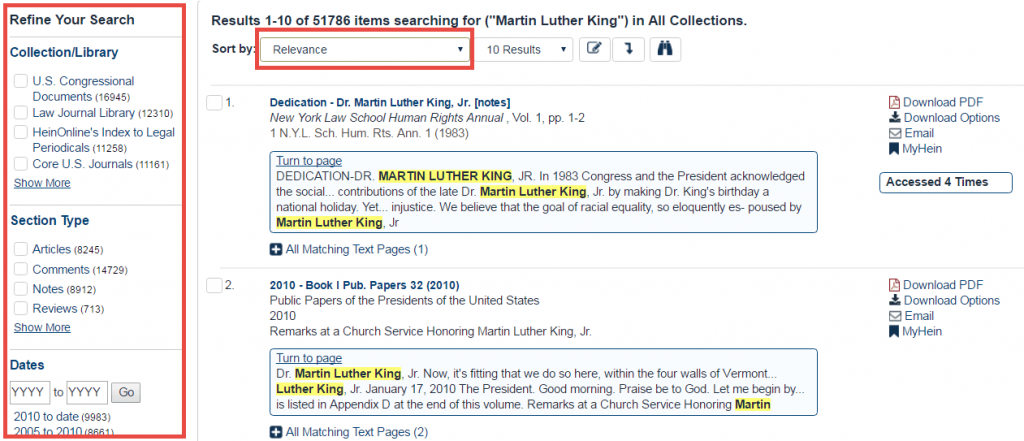
For more information on Civil Rights Act of 1964, check out the U.S. Federal Legislative History Library. Click on the Sources of Compiled Legislative Histories Database subcollection to access this database based on Sources of Compiled Legislative Histories: A Bibliography of Government Documents, Periodical Articles, and Books by Nancy P. Johnson. Entries include a list of available material pertaining to the public law, including compiled legislative histories, books, and law review articles.
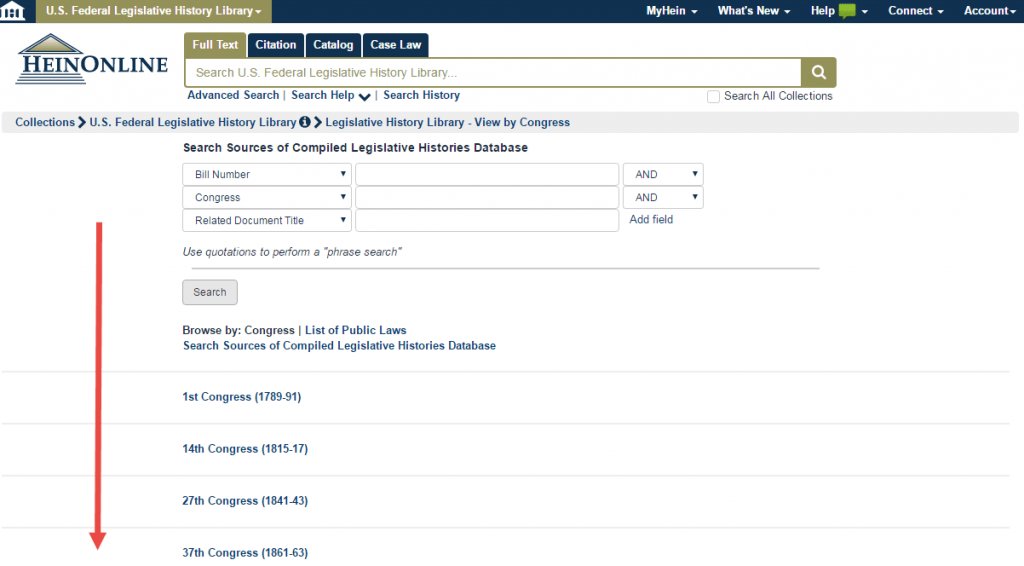
Browse to the 88th Congress (1963-64):
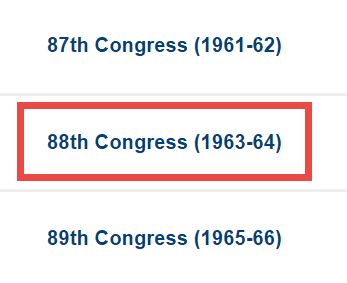
Each public law entry is listed by Public Law/Bill Number, Citation, and Name. Click the 78 Stat. 241 hyperlink citation to access the public law in the official U.S. Statutes at Large. Click the Civil Rights Act Of 1964 hyperlink to view the entry in the Sources of Compiled Legislative Histories:
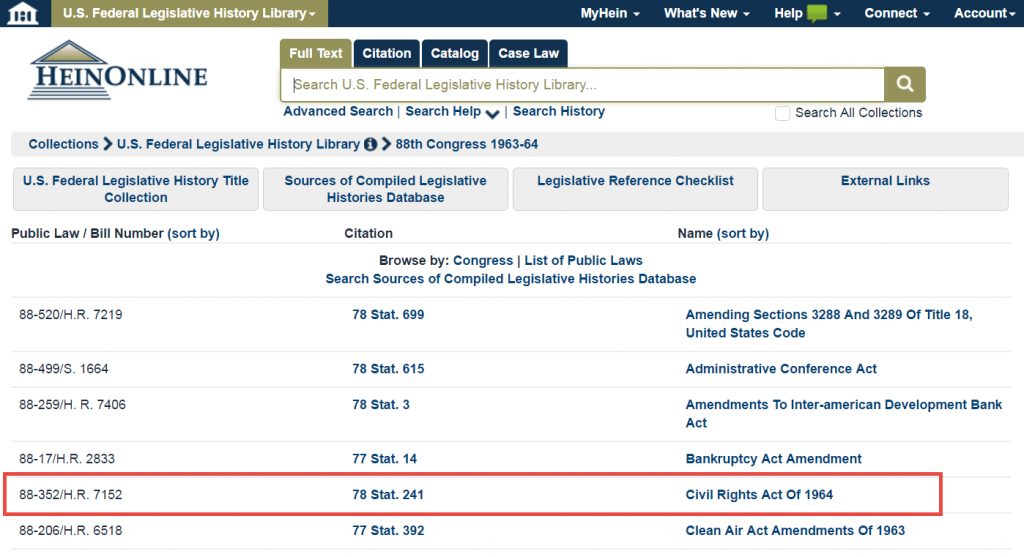
The entries provide a list of available material pertaining to the public law, including the official public law, compiled legislative histories, books, and law review articles, with material available in HeinOnline hyperlinked. Be sure to check out the Articles that cite to this public law number link to view related periodicals provided by HeinOnline’s ScholarCheck tool.
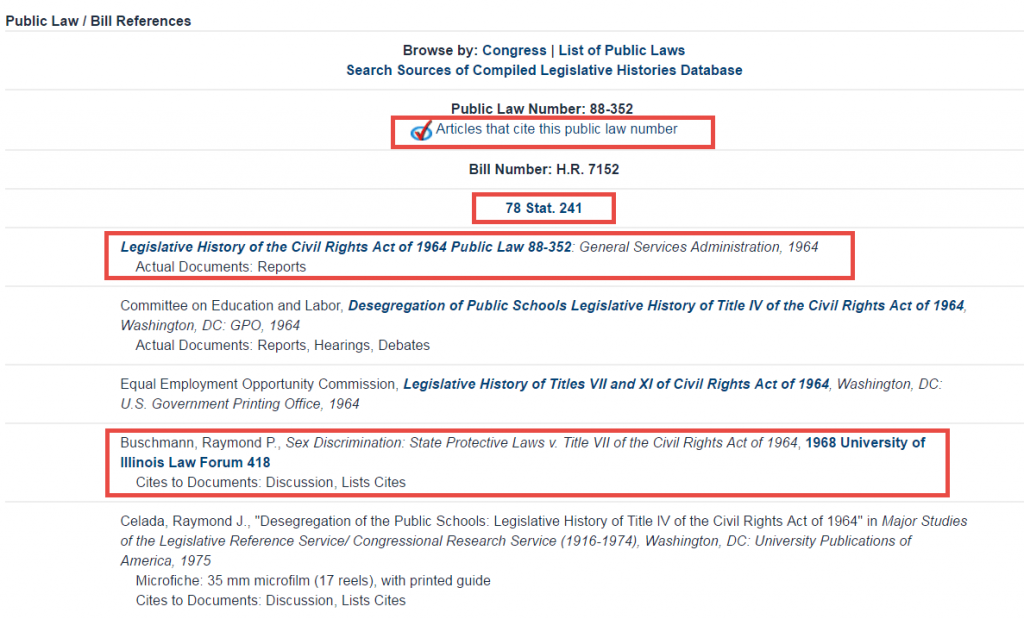
You can also search the Sources of Compiled Legislative Histories Database subcollection. Enter the phrase “Voting Rights Act of 1965” under Popular Name of Public Law using the drop-drown menu:

Click the result link to view the Voting Rights Act of 1965 entry in the Sources of Compiled Legislative Histories Database:

King received the Nobel Peace Prize in 1964 and was posthumously awarded the Presidential Medal of Freedom and the Congressional Gold Medal. We commemorate Dr. King’s courage, leadership, and vision for justice, freedom, and equality, which made an everlasting and profound impact on American society.
For more information on Civil Rights in print, both our United States Commission on Civil Rights: Reports on the Police and United States Commission on Civil Rights: Reports on Voting are now available with a 25% discount through February 28, 2017. Please contact our Marketing Department at marketing@wshein.com for more information.
Please contact our support team at (800) 277-6995, email us, or chat with us for additional assistance searching and navigating in HeinOnline.



